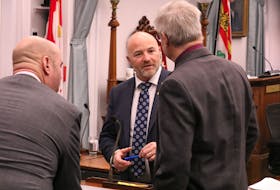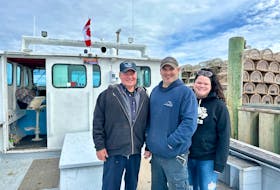
UPEI’s Canada Research Chair in Watershed Ecological Integrity Dr. Michael van den Heuvel, and research scientist with Homarus Inc. Dr. Dounia Daoud are involved in the three-year study that will examine the potential impact of pesticide run-off on lobsters in the Northumberland Strait.
The three-year study is funded by a Strategic Partnership Grant from the Natural Sciences and Engineering Research Council of Canada, and brings together partners from UPEI, the P.E.I. Fishermen’s Association, and Homarus Inc., a non-profit organization managed by the Maritime Fishermen’s Union.
Dr. Michael van den Heuvel, UPEI’s Canada Research Chair in Watershed Ecological Integrity, said the lobster populations in the Northumberland Strait have been collapsed for a number of years, and no amount of fisheries measures have improved that.
“The conclusion is that there are other influencing factors that are not coming from the strait itself. They’re, in fact, coming from the surrounding land.”
President of the PEIFA Craig Avery said, “You have a lot more contaminants, a lot more run-off, and you have them coming from both sides. The strait is right there, and there’s nowhere else for it to go.”
Foremost among those contaminants are pesticides that are highly toxic to invertebrates,
especially crustaceans such as lobster.
A research scientist with Homarus Inc. Dr. Dounia Daoud said, “We are interested in any effect that could potentially be an explanation. It could be temperature. It could be pesticides. It could be acidification. We are studying all of those aspects.”
The project will also establish new long-term monitoring methods to improve our understanding of how the environment changes in response to activity on land.








